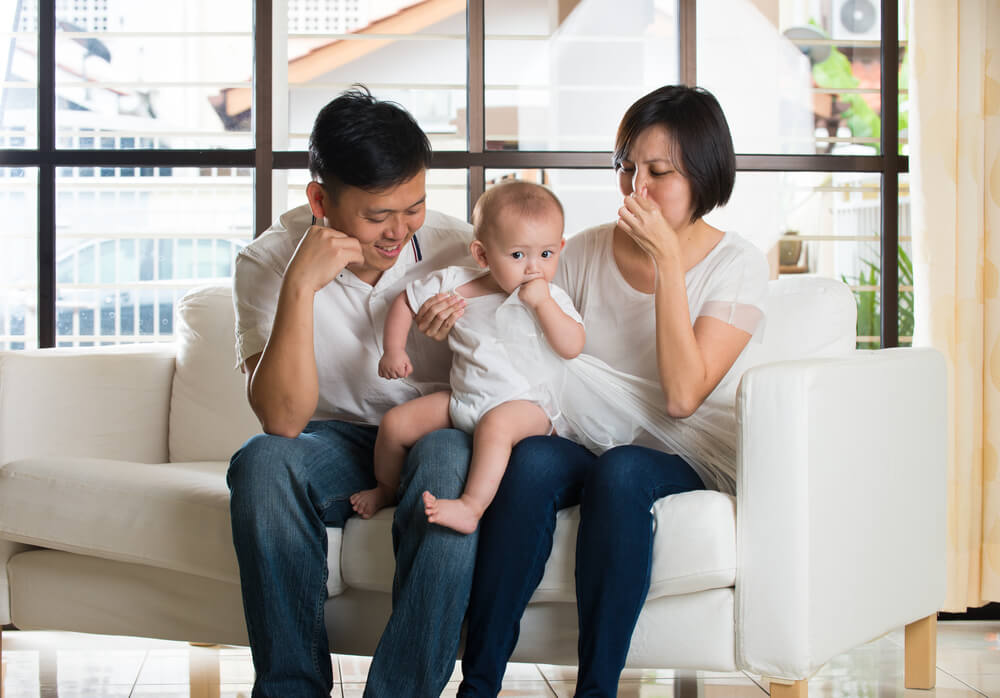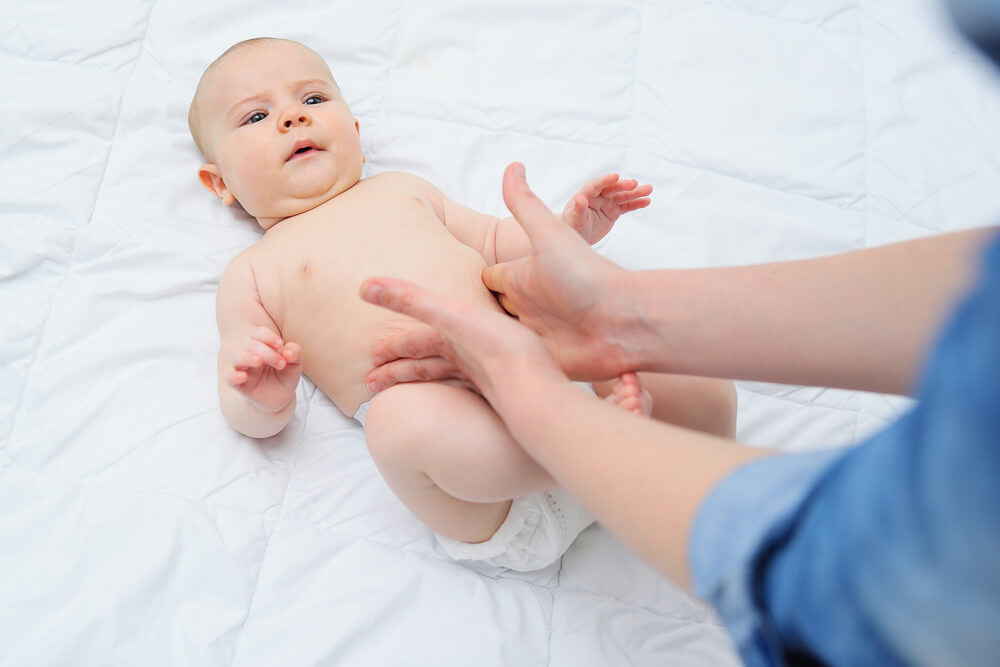Dealing with a bloated baby belly can be challenging, especially if you’re a new parent. We all know how much newborns cry – the crying intensifies if you have a gassy baby. Thus, it’s the parents’ job to help relieve the bloated baby belly. But how does one do this? And are there any fool-proof ways to avoid having a gassy baby in the first place? Luckily, this article will teach you how to relieve and prevent a bloated baby belly. You’ll also learn about the best way to burp a baby to avoid discomfort in the stomach.
That said, choosing a reliable baby doctor is vital for your child’s health. So if you have any questions and concerns about a gassy baby, turn to a professional.
With that out of the way, here are the best tips on what to do when the baby’s stomach is hard.
My Baby’s Stomach is Hard: Common Causes
Before jumping into the tips on how to deal with a bloated baby belly, let’s discuss why you have a gassy baby. Typically, a baby will pass gas around thirteen to twenty-one times per day. So, remember, having a gassy baby is normal and expected.
Many possible causes can lead to a gassy baby. For example, since infants often swallow air (during eating, sucking the pacifier, or crying), their tummies swell up. Moreover, a baby can become gassy when it overeats, is constipated, or when fed in the wrong position. Many newborns may also have intolerances and allergies to certain formulas or breast milk ingredients. On top of that, an infant’s digestive system is still developing and learning how to process food and gas.
Overall, if your baby’s stomach is hard, remember that it’s normal. Although a bloated baby belly will go away on its own, it can cause discomfort for your child, leading to intensified crying.
How to Help a Gassy Baby?

If your baby’s stomach is hard, worry not; there are a few things you can do to relieve discomfort effectively. Here are some helpful ways to deal with a gassy baby.
Change Positions to Relieve Gas
Some positions are highly effective in relieving stomach aches due to trapped gas. One way is to sit upright and hold the baby against your chest. When the baby’s chin is on your shoulder, support them with one of your hands and gently tap them on the back with the other. You can also try to hold the babysitting up in your lap or on your knee. You’ll want to gently support the baby’s head and the chest by holding the chin during this position. Use your other hand to pat the baby’s back carefully. Many parents believe that this is the best way to burp a baby.
Whichever position you go for, remember to be gentle and patient. The best way to burp a baby is to take it slow.
Switch up the Equipment
Often, the wrong equipment will give you a gassy baby. For example, if you are bottle-feeding your baby, trying a different type of bottle and nipple combination could be beneficial. Experts recommend using soft nipples, as these contour along with the baby’s mouth and lips. As a result, you will prevent any accidental flows of air when the baby is eating.
Also, ensure that the milk flows gradually and slowly so the baby has plenty of time to gulp. If not, the baby will likely overeat and the stomach will become bloated.
If you are bottle-feeding your child, make sure they don’t start drinking the milk too fast. If your baby finishes in five minutes, they are likely swallowing a lot of air. In such cases, it’s best to switch to a nipple with a steadier and slower flow.
Burp the Baby Regularly
There is no single “best way to burp a baby.” Do what works for you. However, it’s best to burp the baby as they nurse and when they finish eating. Try not to burp the baby while they are feeding. Instead, wait for the baby to take a break.
If you don’t do it this way, the baby can become upset and burst into crying. Thus, it will likely swallow excess air in the process. Always use a burping position most comfortable for the child and you. Giving a light massage can also be helpful for gas relief.
Be Careful of Your Baby’s Diet
Certain foods can cause an upset stomach. Before switching up your baby’s diet, make sure to consult with a healthcare professional for expert advice.
A baby can get bloated from different foods, so it’s important to stay mindful of what you feed your child.
If you are breastfeeding your child, you’ll also want to be mindful of your diet. On the other side, some formulas can also make your baby gassy. In that case, try switching the brand. Pro tip: Many better quality formula brands claim to prevent gas.
Which Foods Make Breastfed Babies Gassy?
As mentioned, if you are breastfeeding your baby, you’ll want to reduce or altogether avoid consuming the following foods. These include:
- High fiber foods such as oats and bran.
- Fruits such as plums, pears, prunes, and peaches.
- Citrus fruits such as oranges and lemons.
- Cruciferous and green vegetables such as artichokes, brussels sprouts, broccoli, cabbage, and asparagus.
- Starchy foods such as pasta and corn.
- Chocolate, caffeine, and carbonated beverages.
- Dairy.
When Should I Consult a Doctor?

If your baby’s stomach is bloated, worry not, as this condition is common, and it will likely go away on its own. However, in some instances, you might want to consider the help of a trained professional. In some rare cases, you could be dealing with severe digestive tract problems that cause gas. If your infant exhibits any of the symptoms below, reach out to your doctor immediately:
- They are very fussy, and you aren’t able to calm them down.
- They are constantly vomiting, constipated, or if they have blood in the stool.
- They have a very high temperature (the rectal temperature is 100.4 F or 38 °C and beyond).
- Babies younger than three months with a fever should be taken to the doctor straight away.
Although having a gassy infant is entirely normal, it can cause concern. Remember, there are many reasons why your child’s stomach is bloated. For example, they might be swallowing excessive air while eating, crying, or sucking the pacifier. Also, since the baby’s digestive system is still developing, you will need to be mindful of the overall diet.
In rare cases, your child could have serious digestive issues. If the baby is experiencing gas and severe symptoms, immediately consult a professional.
Give us a Call Today
Are you looking for a reputable clinic with a team of professionals? Look no further. Schedule an appointment with us today and get expert advice and guidance on anything related to the health of your child.




